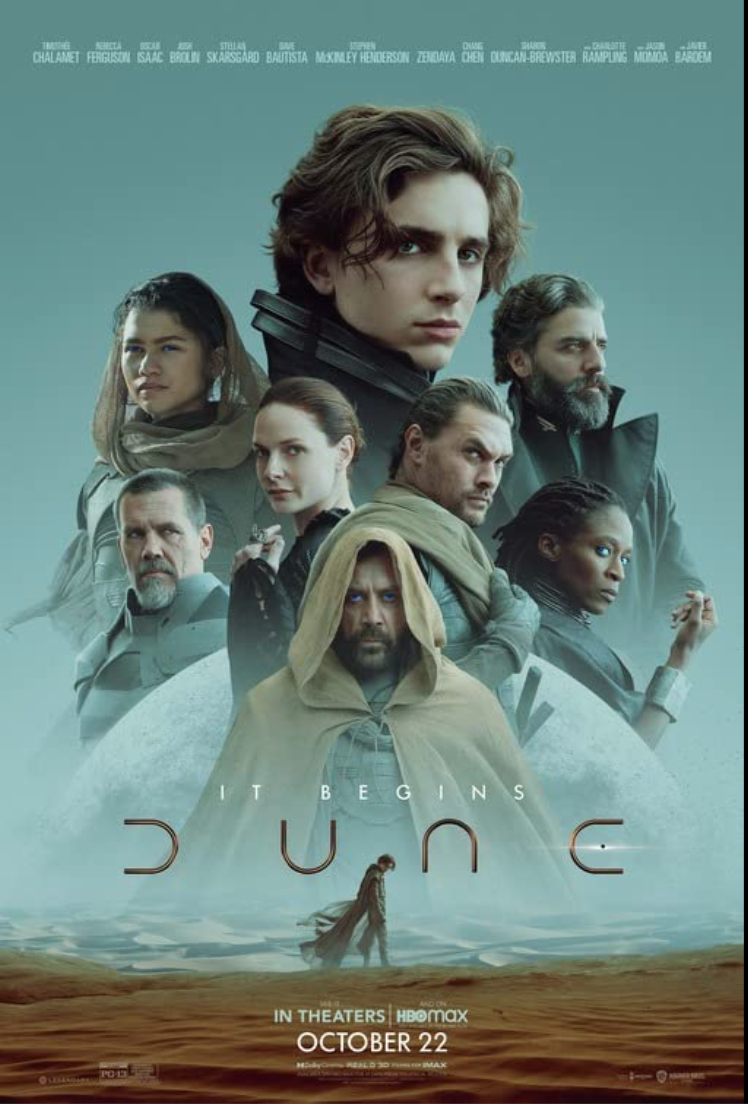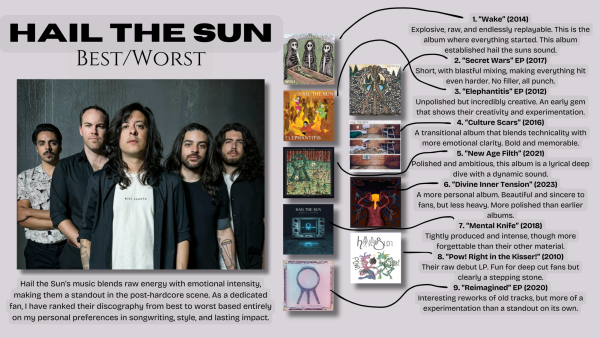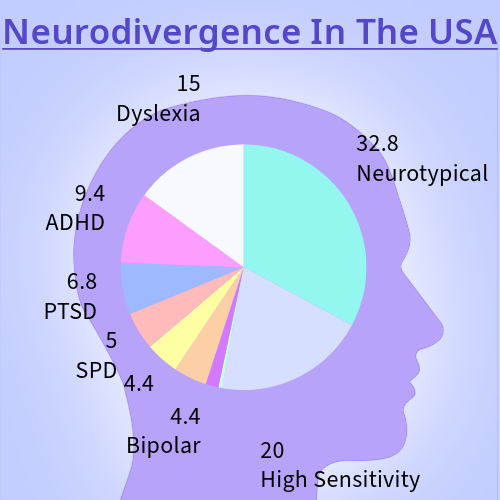Dreams are Messages from the Deep: A Review of Dune 2021
“I must not fear. Fear is the mind-killer. Fear is the little death that brings total
obliteration. I will face my fear. I will permit it to pass over me and through me and when
it is gone I will turn the inner eye to see its path. Where the fear has gone, there will be
nothing. Only I will remain.”

A film adaptation of the science-fiction classic “Dune” by Frank Herbert was released in October 2021, exciting fans around the globe. The film, directed by Denis Villeneuve, has earned itself a whopping nine Academy nominations, including a nomination for Best Picture. This is the third film (including the television miniseries) adapted from the 1965 novel, and in my opinion, the truest to the book of any of the
adaptations. After having multiple mediocre “Dune” movies, fans like me hoped that the newest would finally do justice to the story and world of “Dune.”
“Dune” by Frank Herbert is a sci-fi epic set in a corrupted interstellar society, with noble families holding ownership over planets. The story follows Paul Atreides, whose family gains control through imperial decree, of the desert-planet Arrakis, which is the only source of spice. Spice is a drug that extends life, increases mental ability and is
necessary for space travel. It’s also the most valuable substance in the universe.
“Dune” is (in my opinion), the most influential science fiction since Mary Shelley’s 1818 novel “Frankenstein,” which was arguably the first book of the genre ever to be written. You can almost always tell if a science fiction book was written before or after “Dune.” This won the Hugo Award (for best sci-fi/fantasy), and the Nebula Award for best
novel. Only a handful of books have been awarded both prestigious awards, and “Dune” is by far the most recognized and best selling. Lighting the fuse and inspiring other classic Sci-Fi entertainment like Star Wars and Star Trek, this book is still some of the most influential science fiction to this day.
The first film adaptation of the book, “Dune” (1984) directed by David Lynchis a lackluster, messy movie, that strays from the plot entirely by the end. Paul, played by a 24-year-old Kyle MacLachlan, starts the book as a 15-year-old, and the actor looks far from that in the movie. Overall, the acting, even with credible actors like Patrick Stewart and Max von Sydow, is quite terrible. This snoozer of a film adds nothing to the original story, and by itself as a movie it doesn’t have an easy-to-follow plot at all.
And now, we take the most recent adaptation(or half an adaptation per se) into account, and how it did conveying the story of “Dune” on the big screen. Overall, I have to say seeing this movie for the first time in the movie theater was an experience. The film has amazing sound quality, sound effects, and music that made the experience different than any other adaptation. I really liked how every time I re-watched, I liked the movie more. The creative architecture differences from planet-to-planet, the use of different languages (including a type of sign language), and talented acting by the entire cast, made this movie nearly as impactful as the book.
Phenomenal acting from Stellan Skarsgård as the story’s main antagonist Vladimir Harkonnen brings the movie alive with his menacing and terrifying performance. By showing the character in such a theatrical way (and being able to not make it cheesy) the cinematography and acting enhances the character even from his depiction in the book.
However, another main antagonist Feyd Rautha, Baron Harkonnen’s nephew (depicted by Sting in the 1984 version) was not included in this movie. But don’t let that give you a loss of hope, because “Dune,” or “Dune: Part One” only explains a little over half the book before leaving fans wishing for the ending.
The movie also shows things that were never shown in the book, such as the scene at Selusa Seccundus, the planet of the Sardaukar (imperial elite soldiers) who are known to be invincible. The planet, however mentioned in the book, never got its own scene. I enjoyed the movie showing more of the universe, and getting to see unique interpretations of the different planet’s appearances.
adds its own flare without changing much, if any of the story.










